In the ever-evolving world of interior design, the dining room stands as a pivotal space—a gathering place where memories are made, stories are shared, and culinary adventures unfold. As we delve deeper into the modern lifestyle, the traditional boundaries of dining spaces have begun to dissolve, giving rise to innovative open concept designs that celebrate spaciousness and fluidity. “” explores the art of merging dining areas seamlessly with kitchens and living spaces, creating inviting environments that reflect our contemporary needs for versatility and connection. From minimalist aesthetics to bold accents,this article will guide you through a curated selection of designs that not only enhance functionality but also inspire creativity in our most communal setting. Join us as we explore how modern living redefines the dining experience and invites us to embrace space like never before.
Embracing the Open Concept: Merging Dining and living Spaces Seamlessly
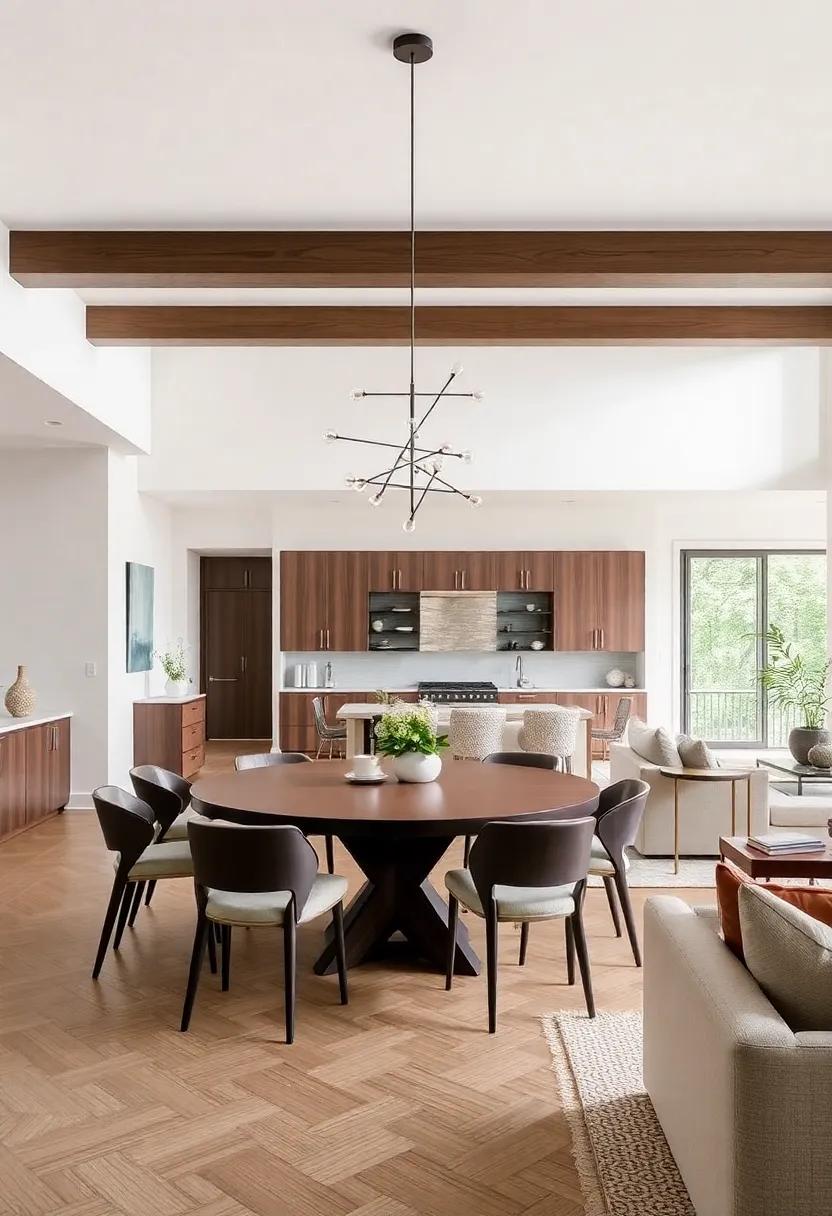
In the dynamic landscape of modern interior design, the seamless fusion of dining and living areas has become a sought-after aesthetic that maximizes space and encourages social interaction. By blurring the lines between these two essential spaces, homeowners are not just creating visually appealing environments but also reimagining how they engage with family and friends.Consider integrating elements such as an open kitchen island, which can serve as both a cooking area and an informal dining spot, or utilize large windows that allow natural light to flow freely and create an inviting atmosphere.
To enhance the coherence of your open concept, it’s vital to pay attention to colour palettes, materials, and furniture styles. Neutral tones can provide a calming backdrop, while carefully chosen accessories add personality without overwhelming the space. Here’s a rapid overview of essential design elements to consider:
| Element | Description |
|---|---|
| Furniture Arrangement | use area rugs to define spaces while promoting flow. |
| Lighting Choices | Incorporate pendant lights over the dining table for emphasis. |
| Natural Elements | Add plants for a touch of greenery and freshness. |
The Warmth of wood: Incorporating Natural Elements in Open Dining Rooms
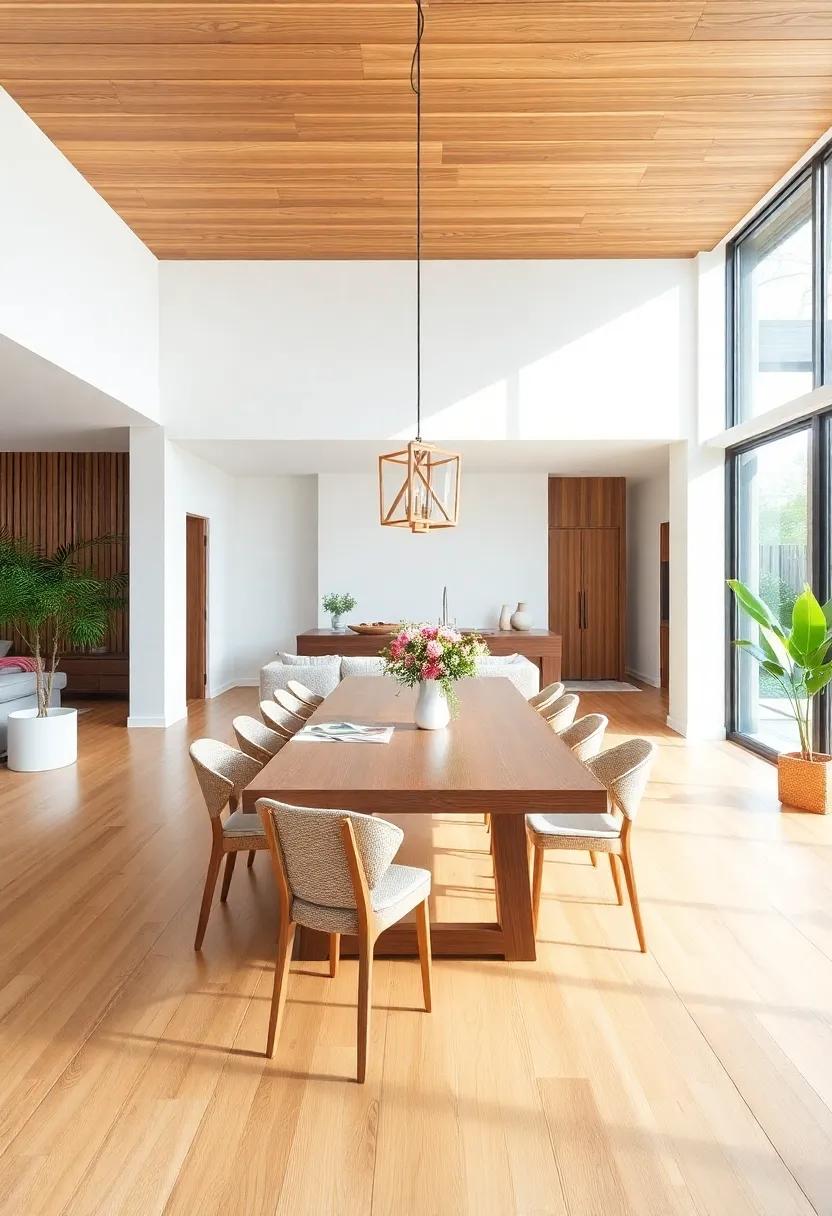
Incorporating natural materials, particularly wood, into open dining spaces can create an inviting and warm atmosphere that enhances the overall dining experience. Wood’s innate ability to evoke feelings of comfort and familiarity makes it an excellent choice for both furnishings and architectural elements. Consider roof beams or wood-paneled walls that connect the dining area to the kitchen,seamlessly bridging the gap while adding character. Further, choosing wooden dining tables and chairs can emphasize this connection to nature, creating a cohesive aesthetic that invites guests to linger and enjoy the ambiance.
To elevate the warmth of wood in your open dining room, think about integrating complementary elements that harmonize with the natural beauty of the material. Rustic touches—like woven placemats, ceramic tableware, and leafy centerpieces—can enhance the earthy vibe. You might also explore lighting options that feature wood elements or warm-toned fixtures, casting a soft glow over the dining area. Here’s a simple breakdown of effective wood-influenced decor items:
| Decor Element | Description |
|---|---|
| Wooden Tables | A sturdy centerpiece for gatherings. |
| Accent Chairs | Add comfort and style around the table. |
| Natural Wood Shelving | Showcase decor and dishware elegantly. |
| Wooden details | incorporate in light fixtures or decor. |
Color palette Harmony: Finding the Right Shades for a Cohesive Look
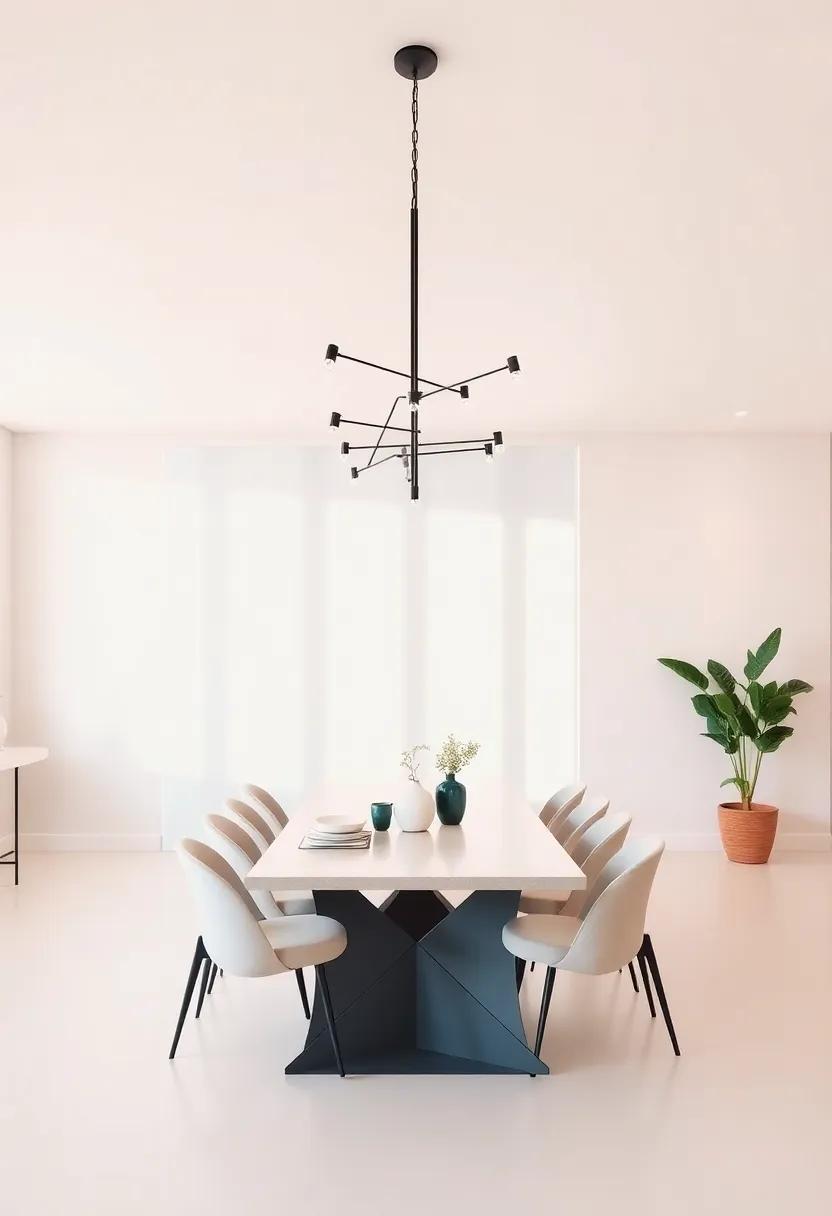
Creating a visually engaging open concept dining area begins with selecting a harmonious color palette that fosters unity throughout the space. Consider complementary shades that enhance the architectural features and overall ambiance. A well-chosen palette can transform a dining room into a cohesive extension of the kitchen and living areas. To achieve this, you might explore the following strategies:
- Monochromatic Schemes: Using variations of a single color in different shades can create a soothing, streamlined look.
- Analogous Colors: Selecting colors that sit next to each other on the color wheel, such as blues and greens, fosters a natural flow.
- Accent Highlights: Incorporating a bold accent color can introduce contrast while maintaining balance with neutral calming tones.
To aid in visualizing your palette, consider creating a small reference table of colors and their corresponding uses. This step can definitely help clarify which hues work best for furniture, wall paint, and decor items:
| Color | Use |
|---|---|
| Powder Blue | Wall Paint |
| Warm taupe | Dining Table |
| Coral | Accent Pillows |
| Ivory | Chair Upholstery |
This approach not only fosters a cohesive look but also allows for creativity and personalization within the design. By thoughtfully choosing and coordinating colors, your open concept dining room will embody a warm, inviting atmosphere, making it the perfect space for gatherings and daily meals alike.
Creative Furniture Arrangements: Optimizing Space in Dining Areas
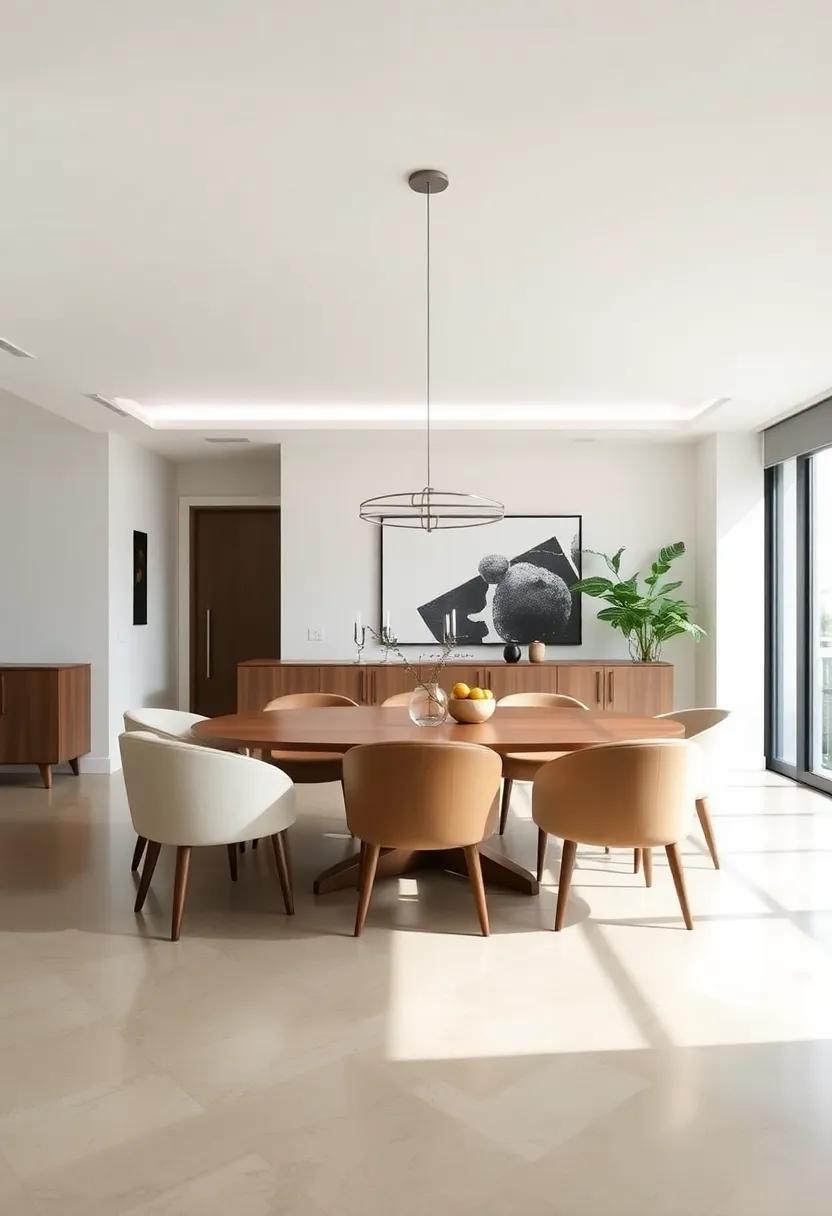
Transforming a dining area into a functional and stylish space hinges on the arrangement of furniture. By experimenting with various layouts, you can create an inviting atmosphere that promotes interaction and flow. Consider these options:
- Rectangular Table with Benches: This modern look fosters a communal feel and maximizes seating.
- Round Table for Small Spaces: Ideal for intimate dinners, round tables can soften the lines of a room.
- Mix and Match Seating: combine chairs, stools, or even an upholstered bench to add variety and personality.
- Corner nooks: Utilize walls to create cozy seating areas that are both functional and visually appealing.
Incorporating multifunctional pieces can greatly enhance space efficiency. Consider a dining table with built-in storage,or perhaps a display cabinet that doubles as a bar. Here’s a simple comparison of optimal furniture choices:
| Furniture Type | Benefits |
|---|---|
| Extendable Table | Accommodates larger gatherings without sacrificing space. |
| Bar Cart | Provides mobile storage and a stylish serving option. |
| Outdoor-Indoor Convertible Set | Versatile for various occasions and weather conditions. |
Multi-Functional Dining Tables: Pieces That Adapt to Your Needs
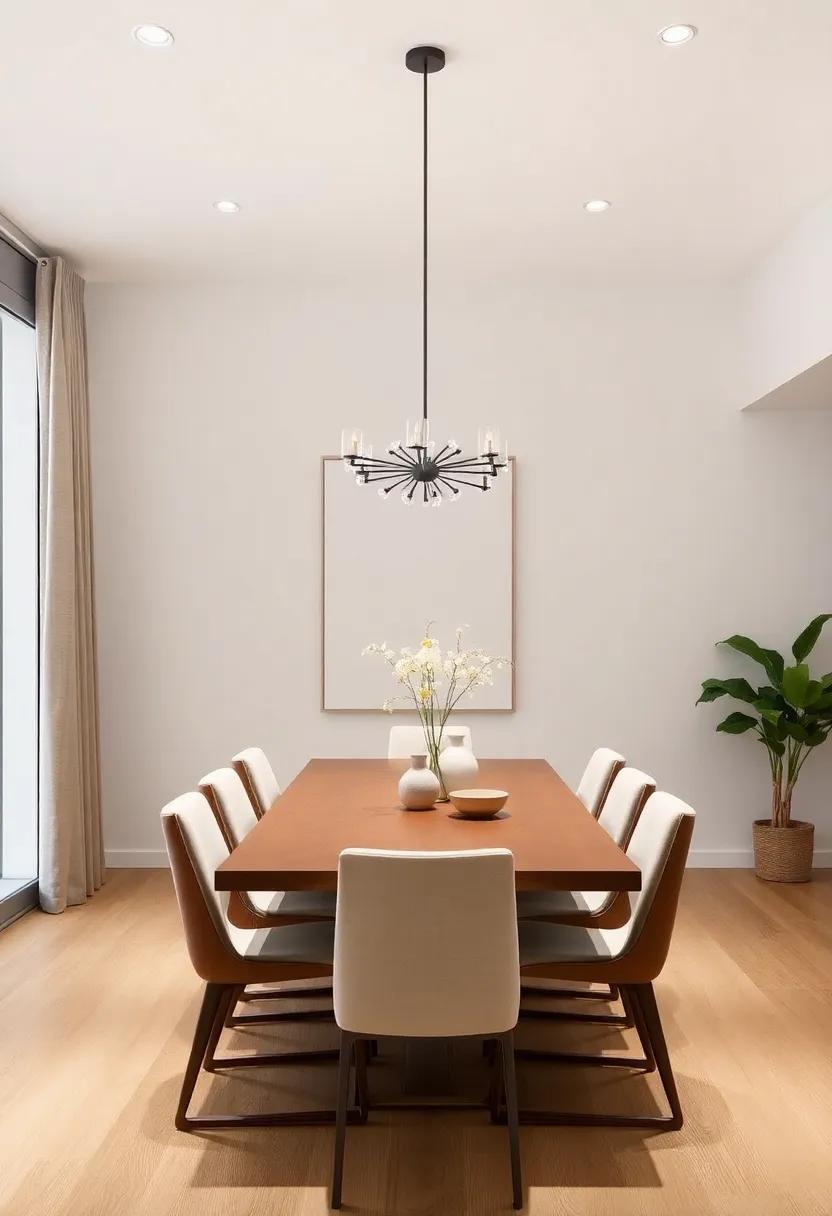
In today’s fast-paced world, dining tables that serve multiple functions provide both flexibility and style, expertly blending into open-concept homes. These versatile pieces can transition seamlessly from a casual breakfast nook to a formal dining setting, ensuring that every mealtime is a special occasion. With designs ranging from expandable tabletops to drop-leaf styles, you can easily adapt your space according to the number of guests or the type of gathering.
Consider incorporating a dining table that offers additional features such as storage or integrated seating. Look for designs that boast:
- Built-in storage for utensils and linens, keeping your space clutter-free
- Convertible surfaces that can double as a work desk or game table
- Integrated seating options like benches or stools for a cozy, relaxed atmosphere
These innovative solutions not only enhance functionality but can also serve as stunning focal points in your living space, enriching both the aesthetic and practical aspects of dining in modern homes.
Lighting Innovations: Transforming Ambiance with Unique Fixtures
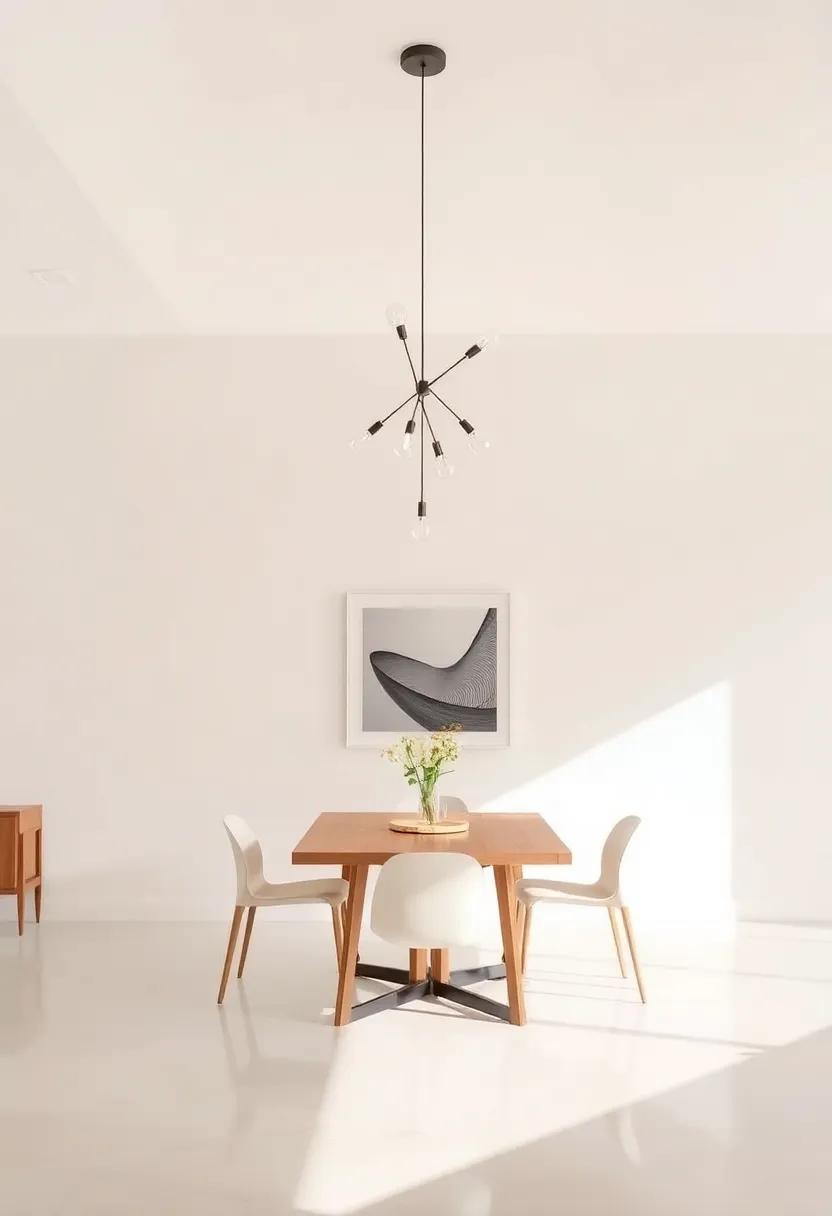
In the realm of modern open concept dining rooms, lighting has emerged as a pivotal element in shaping the overall ambiance. Unique fixtures not only serve as functional sources of illumination but also as striking design focal points.Consider incorporating statement pieces—such as oversized pendant lights, sculptural chandeliers, or minimalist wall sconces—to draw the eye and create a cohesive narrative within the space. This deliberate choice of lighting can evoke different moods, transforming a lively dinner atmosphere into a cozy, intimate gathering with just the flick of a switch.
Moreover, the integration of innovative smart lighting systems allows for customizable settings tailored to various occasions. Homeowners can experiment with color temperature and brightness, enhancing the dining experience to align with personal preferences or seasonal themes. Here are some ideas to consider:
- dimmable fixtures for effortless mood adjustments during formal dinners.
- Color-changing LEDs to infuse a playful element for casual celebrations.
- Accent lighting to highlight art pieces or architectural features, enriching the visual interest of the dining room.
| Fixture Type | Style | Best For |
|---|---|---|
| Pendant lights | Modern/Industrial | Casual Dining |
| Chandeliers | Traditional/Art Deco | Formal Occasions |
| Wall Sconces | Minimalist | Cozy settings |
Textures and Layers: Adding Depth to Open concept Dining Spaces
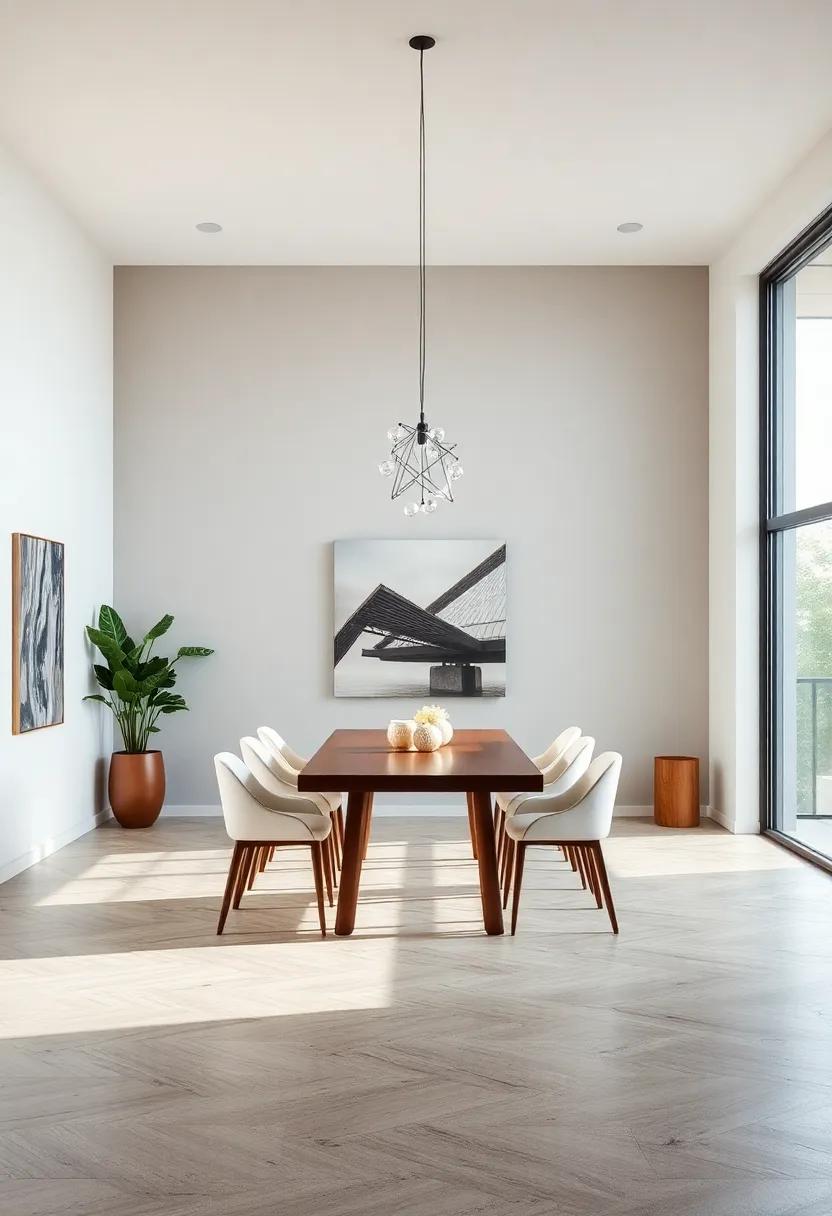
Incorporating a variety of textures and layers is essential for creating an inviting and visually engaging open concept dining space. Start by selecting a base layer, such as a plush area rug that defines the dining zone while providing warmth underfoot. Pair this with a combination of materials for furniture and accessories, including a wooden dining table, upholstered chairs, and metallic accents.Let natural elements, like indoor plants or wooden decor, enhance the organic feel of the area.
To further amplify the depth of the space,consider utilizing the walls and ceiling as additional layers. A bold accent wall featuring textured wallpaper or rustic wood panels can create a focal point. Use decorative elements like framed artwork or mirrors to reflect light and expand the ambiance. Incorporate a mix of lighting styles—hanging pendant lamps over the dining table, ambient wall sconces, and perhaps a statement chandelier. this layered approach not only brings personality to the dining area but also enriches the overall aesthetic of the open concept layout.
Bold Wall art: Making a Statement in Dining Areas
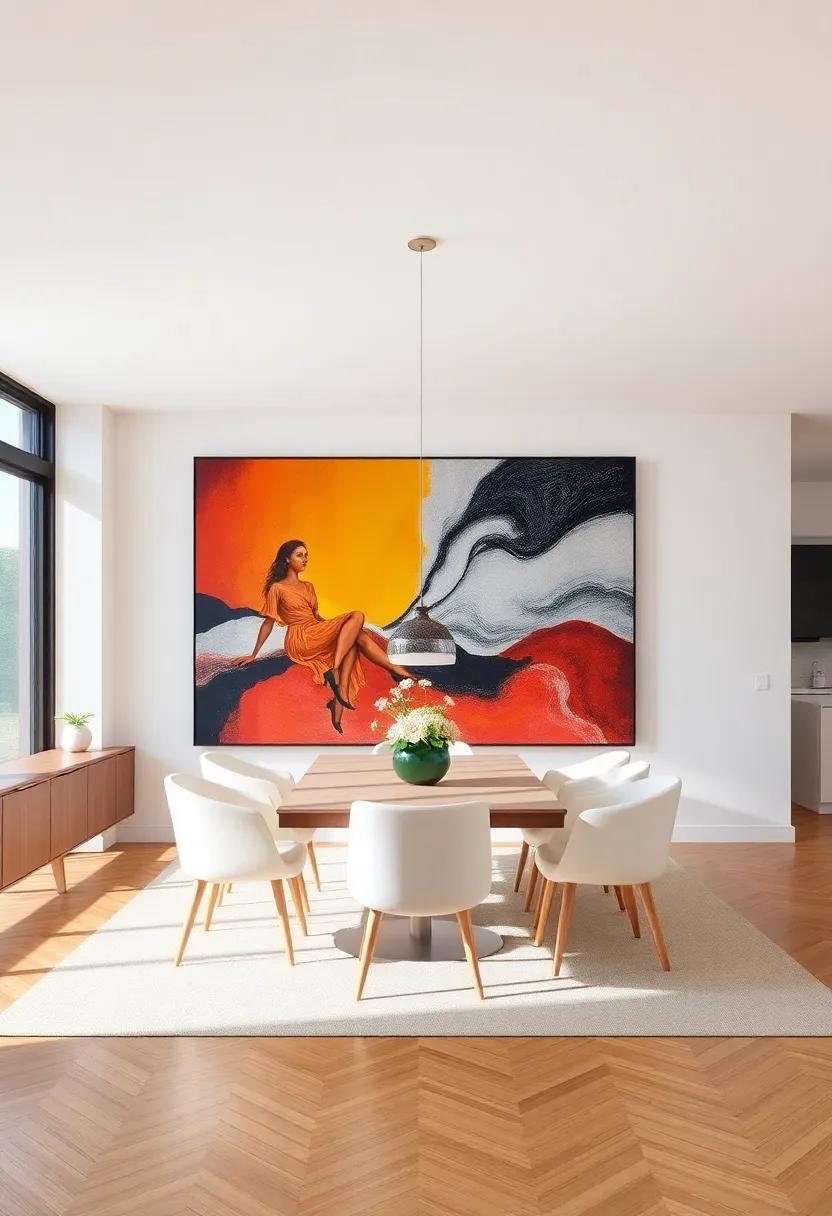
in an open concept dining area, bold wall art can serve as the focal point that draws the eye and sets the tone for the entire space.When choosing pieces, consider vivid colors and intriguing patterns that resonate with the atmosphere you want to cultivate. You might choose from:
- Large Canvases: Oversized pieces can create an immediate impact, perfect for making a statement.
- Gallery Walls: A collection of diverse art can add character and personalize your dining area.
- Textured Art: Incorporating different materials such as metal or wood can add depth and interest.
Integrating bold art not only enhances aesthetics but can also inspire the dining experience.Use warm and inviting frames to complement the design of your dining space, or consider how the colors in your art can harmonize with your furniture and decor. Create a visual dialog by placing art pieces adjacent to natural elements like plants or subtle lighting to enhance their beauty. For guidance, consider this compatibility table:
| Art Style | best Pairing | Suggested Colors |
|---|---|---|
| Abstract | Sleek Furniture | Bolder Hues |
| Black and White | Natural Wood | Neutral Tones |
| Landscape | Bright Textiles | Earthy Palette |
Indoor-Outdoor Flow: Blurring Boundaries with Dining Spaces
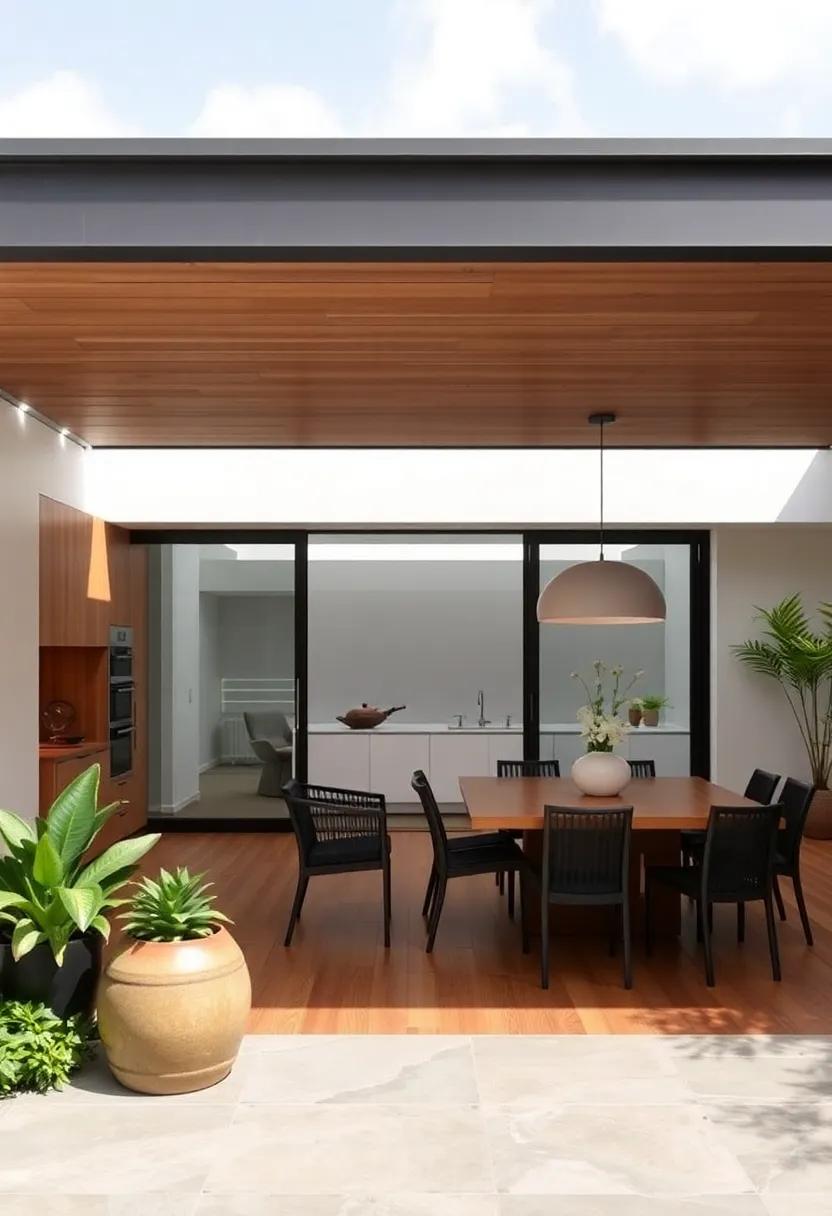
In the essence of modern living,the seamless transition between interior and exterior spaces can invigorate the dining experience,creating a harmonious atmosphere that invites both relaxation and socialization. By incorporating large sliding glass doors, expansive windows, and even bi-fold doors, homeowners can effortlessly blend their dining areas with outdoor terraces or gardens. This design approach not only enhances connectivity with nature but also enhances natural light within the dining space, fostering a bright and airy ambiance.Consider the following elements to redefine your dining experience:
- Retractable Screens: To maintain comfort while enjoying fresh air.
- Integrated Lighting: Enhance evening dining with ambient lighting that flows from indoors to outdoors.
- Outdoor Furnishings: Select durable finishes that mirror your indoor décor for a unified look.
Additionally, using outdoor rugs and greenery can help create a cohesive look between the indoor dining space and outdoor areas. This approach not only blurs physical boundaries but also enriches the sensory experience by introducing natural elements. A carefully designed dining area could also feature a simple yet elegant table that complements both settings, allowing for multifunctional use during family gatherings or entertaining guests. Consider these design elements:
| Design element | Impact |
|---|---|
| Large Windows | Maximize views and light |
| Connected Decor | Create visual continuity |
| Natural Materials | Enhance warmth and texture |
Creating Zones: Defining Dining Areas Within Open Living Spaces
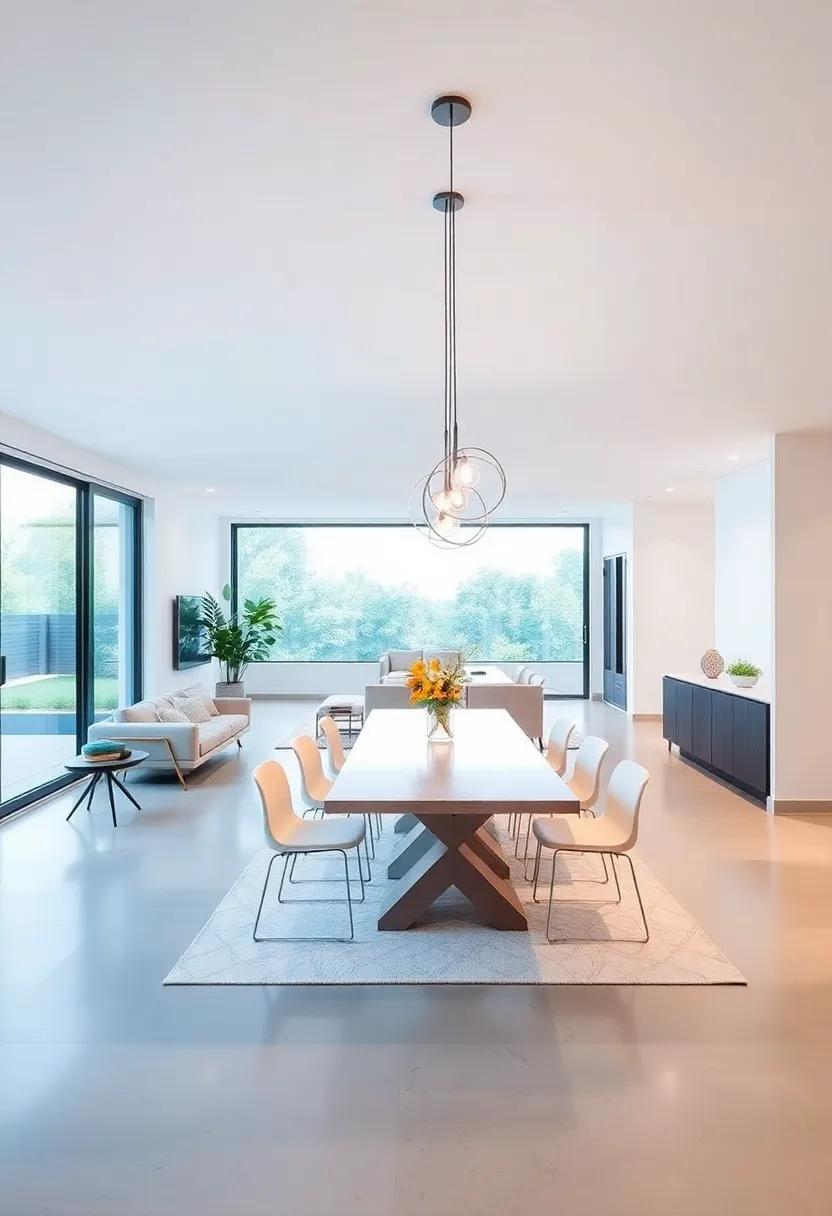
In modern open living spaces, creating distinct zones is essential for functionality and aesthetics. by delineating the dining area from the rest of the living space, homeowners can foster a sense of intimacy and purpose. Consider using area rugs to visually anchor the dining space; this simple addition can delineate sounds and sights while providing a warm, inviting feel. Furniture arrangement also plays a crucial role; positioning the dining table at an angle can create a natural flow and separate it from adjoining areas. Additionally, using light fixtures such as a statement chandelier or pendant lights can build vertical interest, making the dining area feel distinct yet integrated into the overall design.
Another innovative way to define dining areas within open spaces is through the strategic use of color and texture.Feature walls painted in complimentary or contrasting shades can signal a shift from the living area to the dining space, while textured materials like wood paneling or bold wallpaper can add depth and character.Additionally, using furniture with mixed materials, such as metal and wood, can seamlessly connect dining and living areas while still making the dining zone stand out. Don’t forget to incorporate decorative elements like plants or art pieces that not only tie into the decor but also accentuate the unique identity of each zone within the open layout.
Focal Points: Designing around a Central Dining Element
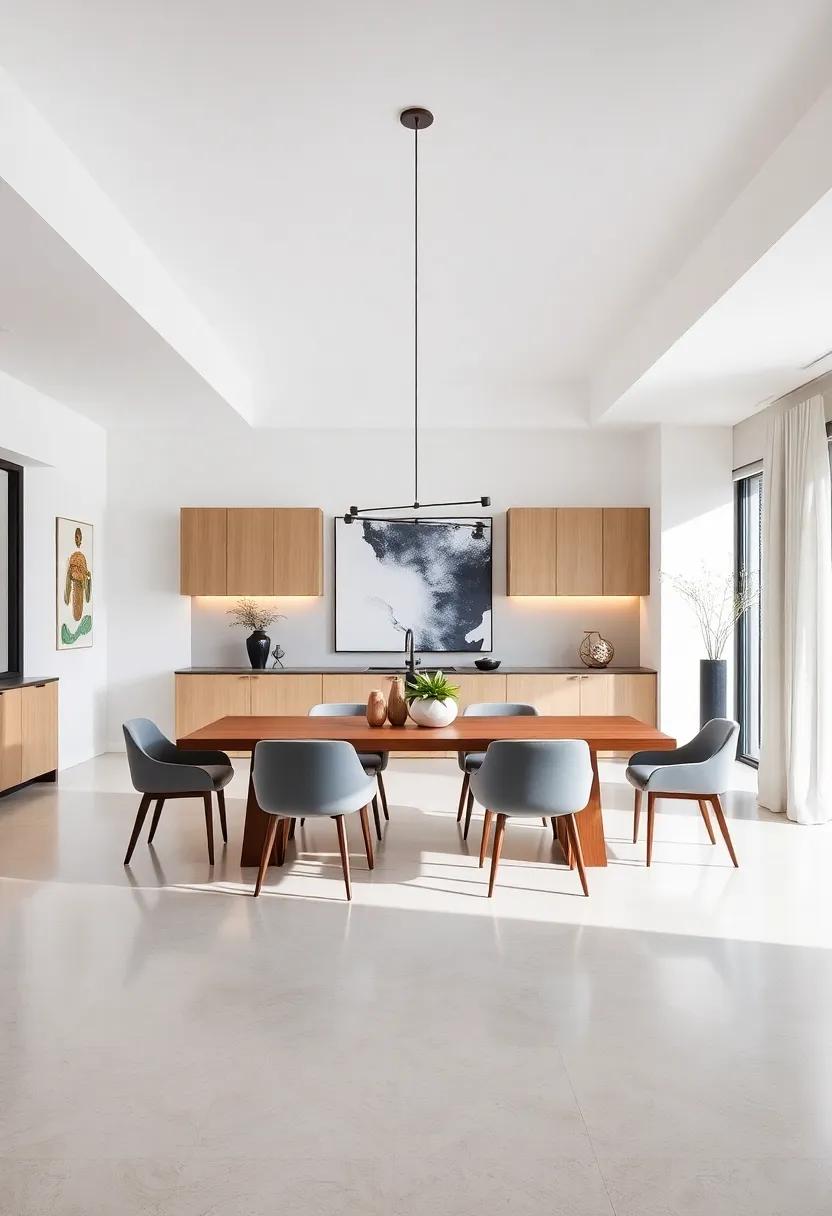
In the realm of open concept living, the dining area emerges as a pivotal space, effortlessly drawing the eye and encouraging interaction among guests. To maximize its potential, consider incorporating a striking central element that serves both form and function. Whether it’s a custom-built wooden table that complements the home’s aesthetic or a sleek, modern glass surface, this feature should reflect the style of the overall design while inviting diners to gather around. Add a statement piece like a bold chandelier or artistic pendant lights above to create a sense of intimacy and elevate the dining experience.
Moreover, the layout surrounding this central piece plays a crucial role. Opt for seating that harmonizes with the table and provides comfort without overwhelming the space. Use materials and colors that interplay with the rest of the room.Consider these ideas to enhance the dining experience:
- Benches or stools that can tuck underneath to create an airy feel.
- Mixed seating styles,such as a combination of chairs and a tufted bench.
- Accent decor: Fresh flowers or unique centerpieces that reflect your personality.
| Element | Purpose |
|---|---|
| Central Table | Focus point, encourages gathering |
| Lighting | Defines space, adds ambiance |
| Decor | Personal expression, enhances aesthetic |
Furniture on Wheels: Embracing Flexibility in Dining Room Design
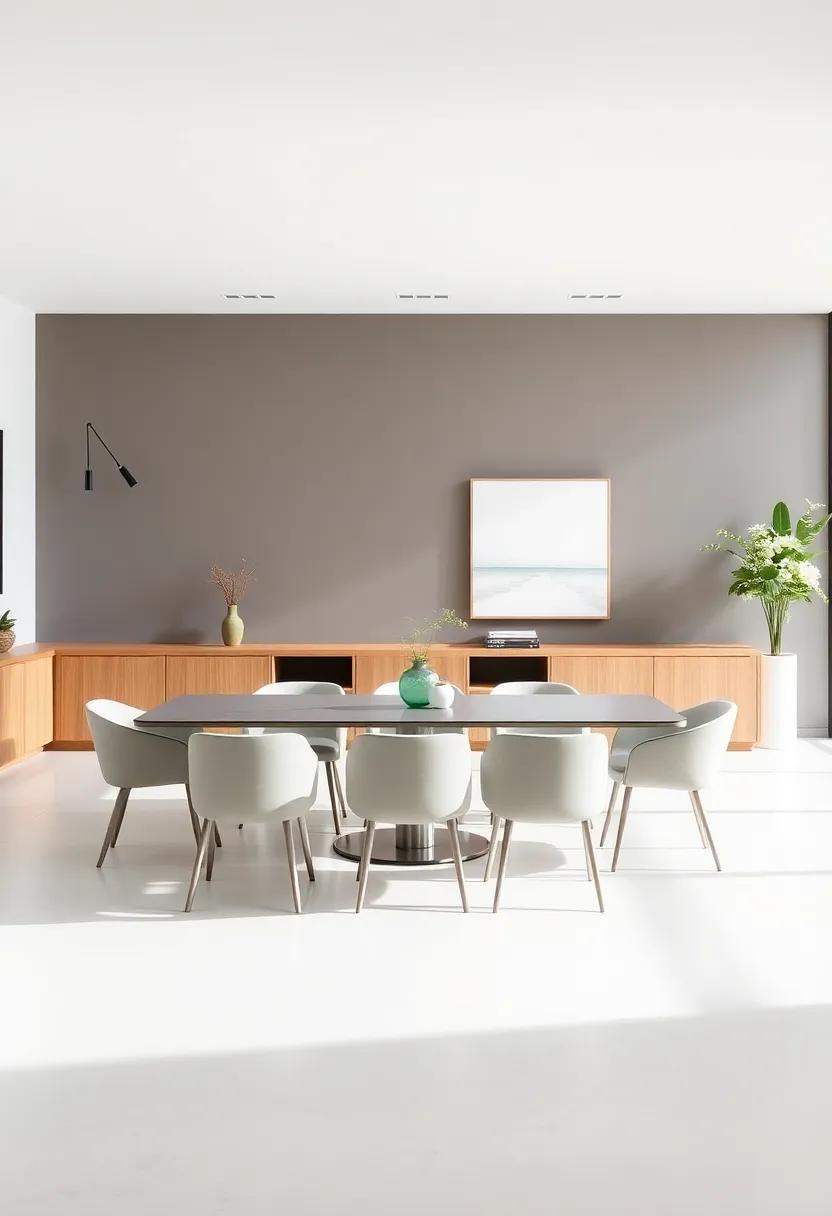
Incorporating mobility into your dining room design can elevate both functionality and aesthetic appeal. Furniture on wheels allows for effortless reconfiguration,making it easy to adapt the space for gatherings or intimate dinners alike. Imagine a dining table that can be rolled aside to create more room when hosting guests,providing a versatile layout that can reflect your needs at any given moment. Whether you choose a stunning rolling serving cart or a dining table with integrated casters, these pieces foster a dynamic habitat where creativity meets practicality.
Consider versatile furniture options that not only enhance style but also ensure smooth mobility. Some popular selections include:
- Dining Tables with Casters: Perfect for adjustable spacing and storage.
- Rolling Chairs: Easy to move around, accommodating various seating arrangements.
- Storage Carts: Ideal for quick access to dining essentials while maintaining an uncluttered look.
by selecting pieces that are both chic and functional,you create a dining space that welcomes interaction and adaptability,ultimately embracing the essence of modern living.
Sustainable Materials: Eco-Friendly choices for Modern Dining
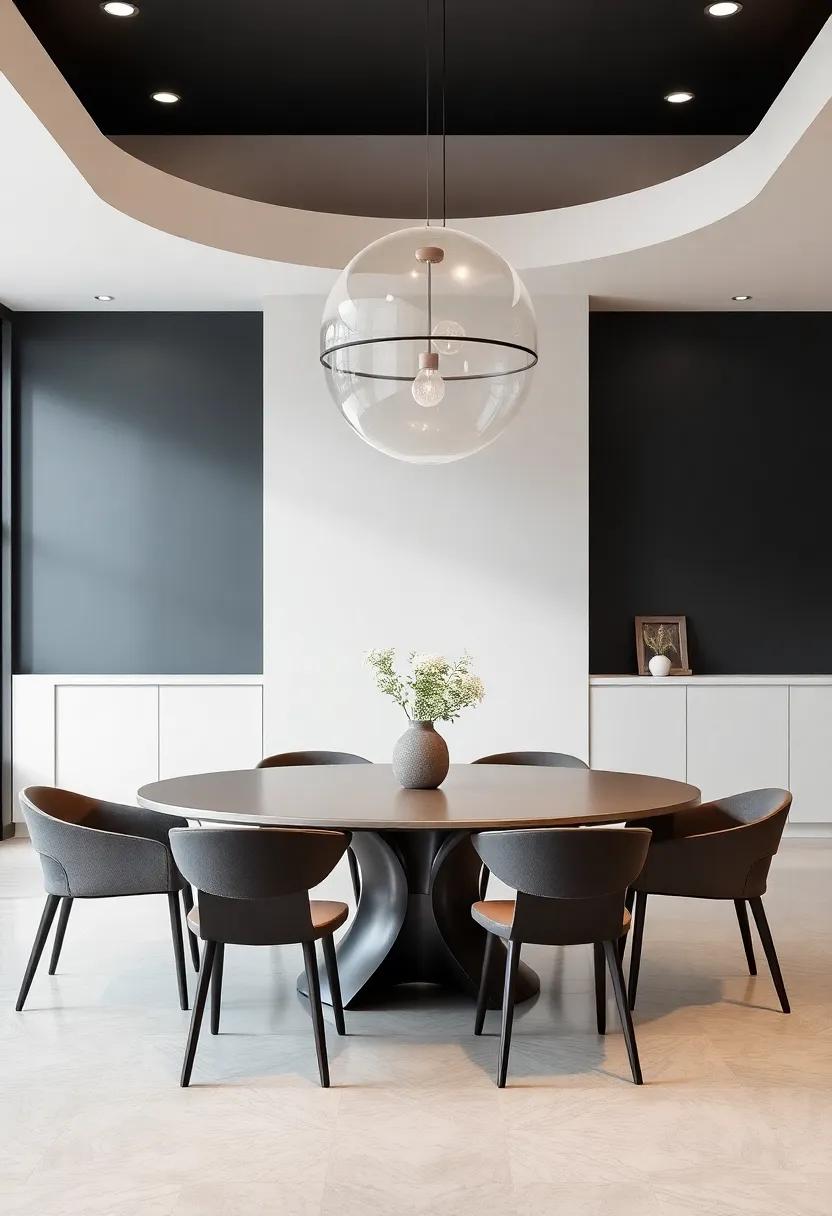
In the quest for creating beautiful dining spaces that are also kind to our planet, the selection of materials plays a pivotal role. When designing an open concept dining room, consider incorporating reclaimed wood for tables and chairs, which not only adds character but also minimizes the demand for new timber. Additionally, bamboo is a fantastic option due to its rapid growth and renewability. For dining accessories, look for ceramics and glass made from recycled materials to enhance the aesthetic without compromising sustainability.
Furthermore, upholstery choices can significantly impact the environmental footprint of your dining area. Opt for organic cotton, hemp, or linen fabrics that are produced without harmful chemicals. Consider using a color palette inspired by nature, featuring earthy tones that evoke a serene atmosphere. To complete the eco-friendly concept, integrating upcycled décor—such as sculptures made from recycled metal or vintage finds—can add flair while championing sustainability. By carefully selecting materials, you can curate a dining experience that is both stylish and conscious of its impact on the environment.
Personal Touches: Infusing Your Personality into Dining Areas
Creating a dining area that reflects your personality can transform mealtime into a cherished experience. Start by selecting color schemes that resonate with your character; vibrant hues can inject energy, while muted tones provide a calming atmosphere. Incorporating unique tableware,such as handmade pottery or artisanal utensils,not only adds flair but also tells a story of craftsmanship. To enhance the ambiance, consider using lighting that speaks to your aesthetic—whether it’s a rustic chandelier or modern pendant lights, the right choice can set the perfect mood.
Accessorizing is key to personalizing your space. Think about including decorative elements that reflect your interests, such as framed artwork showcasing your favorite places or photographs of memorable dinners. Incorporate greenery with indoor plants or herb gardens that lend freshness and life to the environment. Additionally, a carefully curated dining centerpiece, perhaps a seasonal arrangement or a collection of candles, can serve as a conversation starter while infusing your dining area with warmth and style.
Innovative Dividers: Stylish Solutions for Separating Spaces
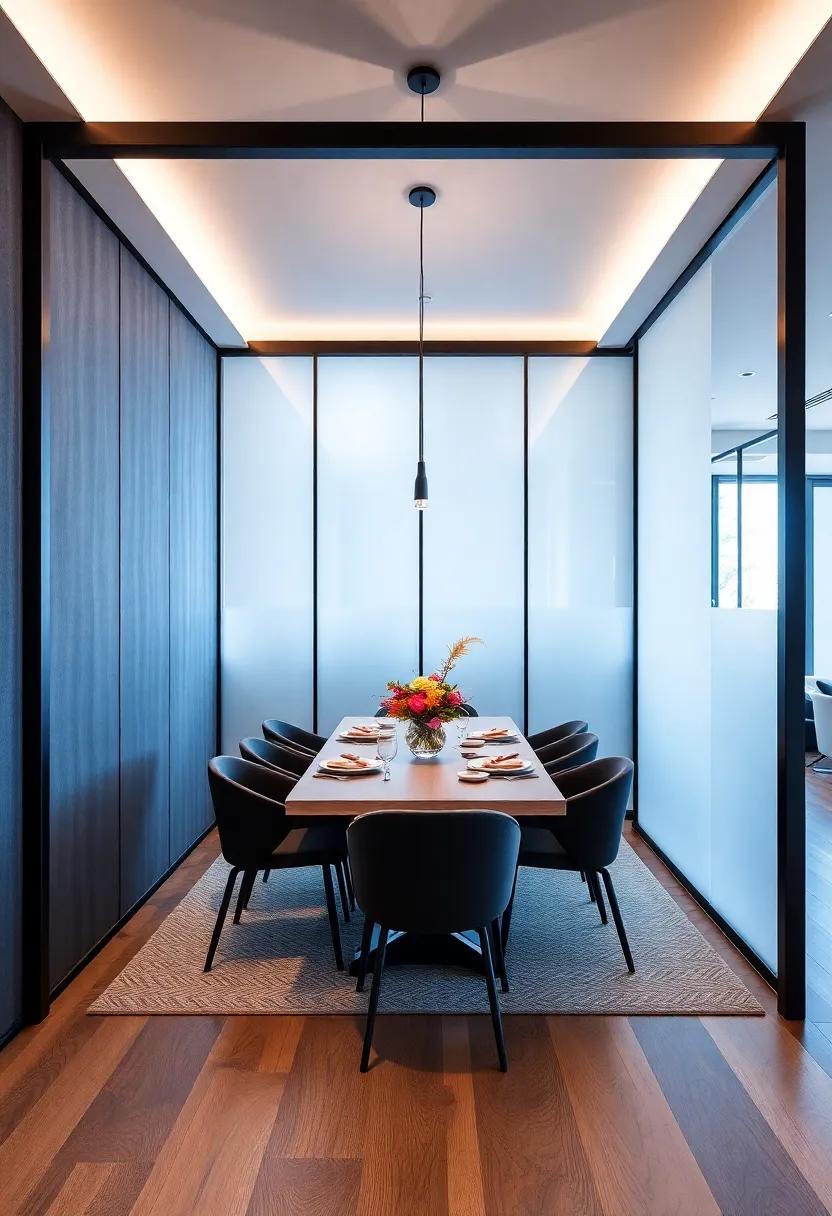
In the realm of modern living, the need for versatility is paramount, particularly in open-concept dining room designs. Innovative dividers offer unique solutions to effectively manage space while enhancing the area’s aesthetic appeal. From decorative screens to natural plant dividers, these stylish options not only create a delineation between dining and living spaces but also serve as focal points within the room. Consider the following divider ideas:
- Artistic Screens: Choose or customize screens that resonate with your design aesthetic, providing a backdrop of beauty while effectively segmenting the space.
- Vertical Gardens: Embrace nature by installing wall-mounted planters that separate areas while introducing greenery, which can purify air and lift moods.
- Open Shelving Units: These create a functional yet stylish barrier, allowing for both separation and a display space for decor and dining essentials.
additionally, the right choice of materials and colors can profoundly influence the overall vibe of the open concept. Obvious dividers, such as glass panels, maintain an airy feel while subtly defining boundaries. Simultaneously occurring, rustic or reclaimed wood adds warmth and character, providing a stunning contrast to modern furniture. This table highlights some popular materials and their benefits:
| Material | Benefit |
|---|---|
| Glass | Allows light to flow, keeping the space bright. |
| Wood | Adds warmth and texture,creating a cozy atmosphere. |
| Metal | Provides an industrial touch, ideal for modern settings. |
Smart Technology: Enhancing the Dining Experience with Modern Gadgets
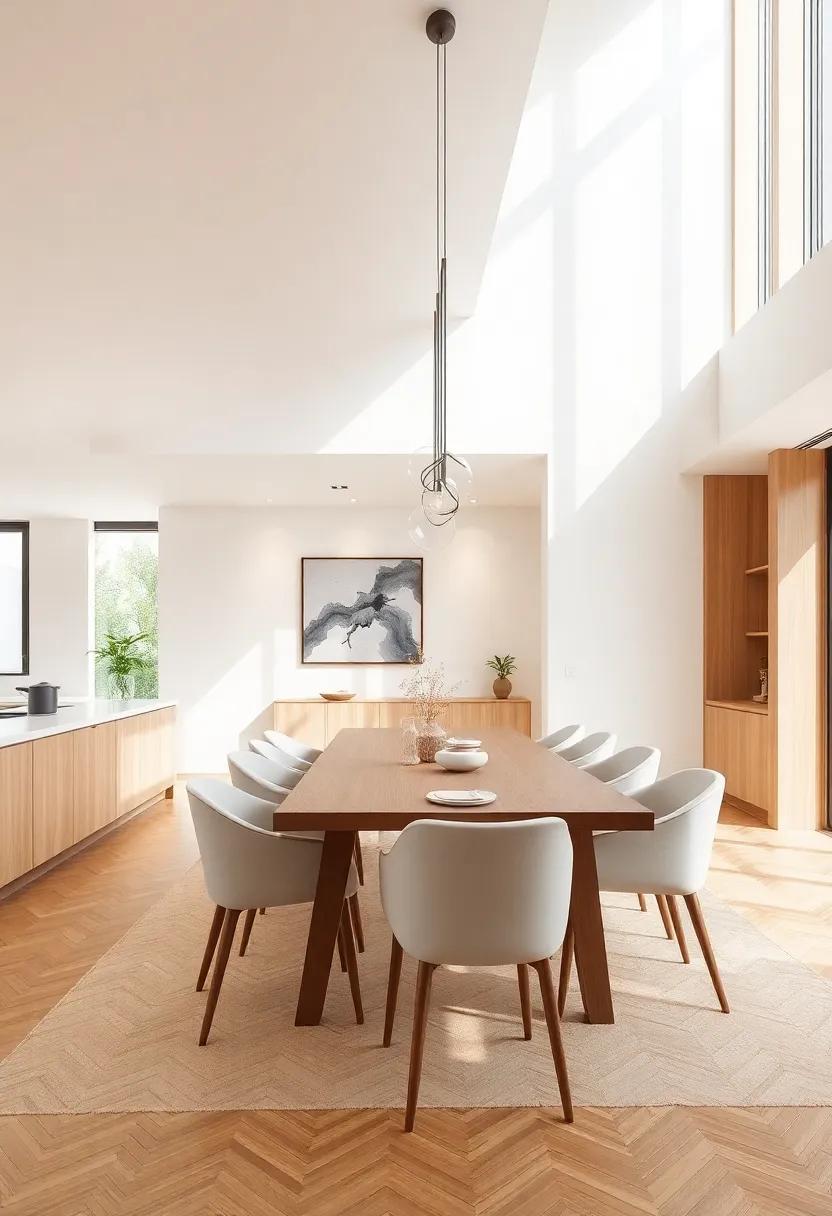
In the world of dining,technology is sizzling along with gourmet cuisine. Smart gadgets are transforming traditional eating spaces into immersive culinary experiences. Picture a dining room where smart lighting adjusts to compliment the mood of your meal, enhancing the ambiance with a soft glow during intimate dinners or vibrant colors for lively gatherings. Further elevating the experience,smart speakers sync with your playlist,setting the perfect soundtrack while seamlessly integrating with voice commands. This fusion of technology and atmosphere invites family and friends to savor not just the food but also the energy of the setting.
Moreover, innovative kitchen gadgets are paving the way for effortless meal readiness. A growing selection of smart kitchen appliances can be controlled remotely, allowing you to preheat your oven or brew coffee right from your phone. Imagine having a refrigerator that alerts you when you’re running low on your favorite ingredients or a connected dining table that provides recipe suggestions based on the items you have. The setup can be further streamlined through technology with features such as:
- Touchless faucets for easy portioning
- A smart oven with guided cooking options
- Integrated charging stations within tables
with these advancements, dining becomes more than just eating; it evolves into an engaging experience where technology harmoniously collaborates with culinary creativity. Furthermore, as open concept spaces continue to gain popularity, these smart devices promise to enhance both functionality and aesthetic appeal, making every meal a beautifully orchestrated event.
Trendy Seating Options: Exploring Unique Chair Designs for Dining Areas
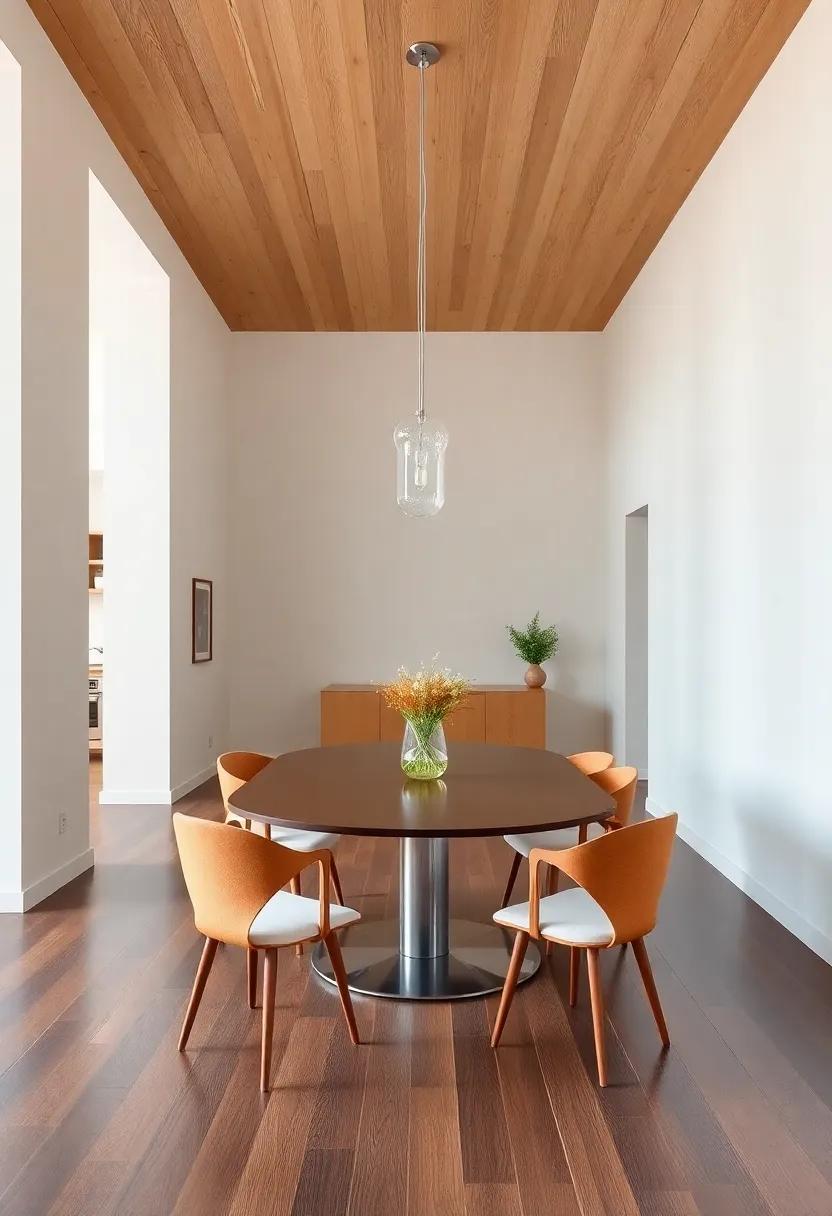
Eclectic Styles: Blending Various designs for an Upscale Dining Look
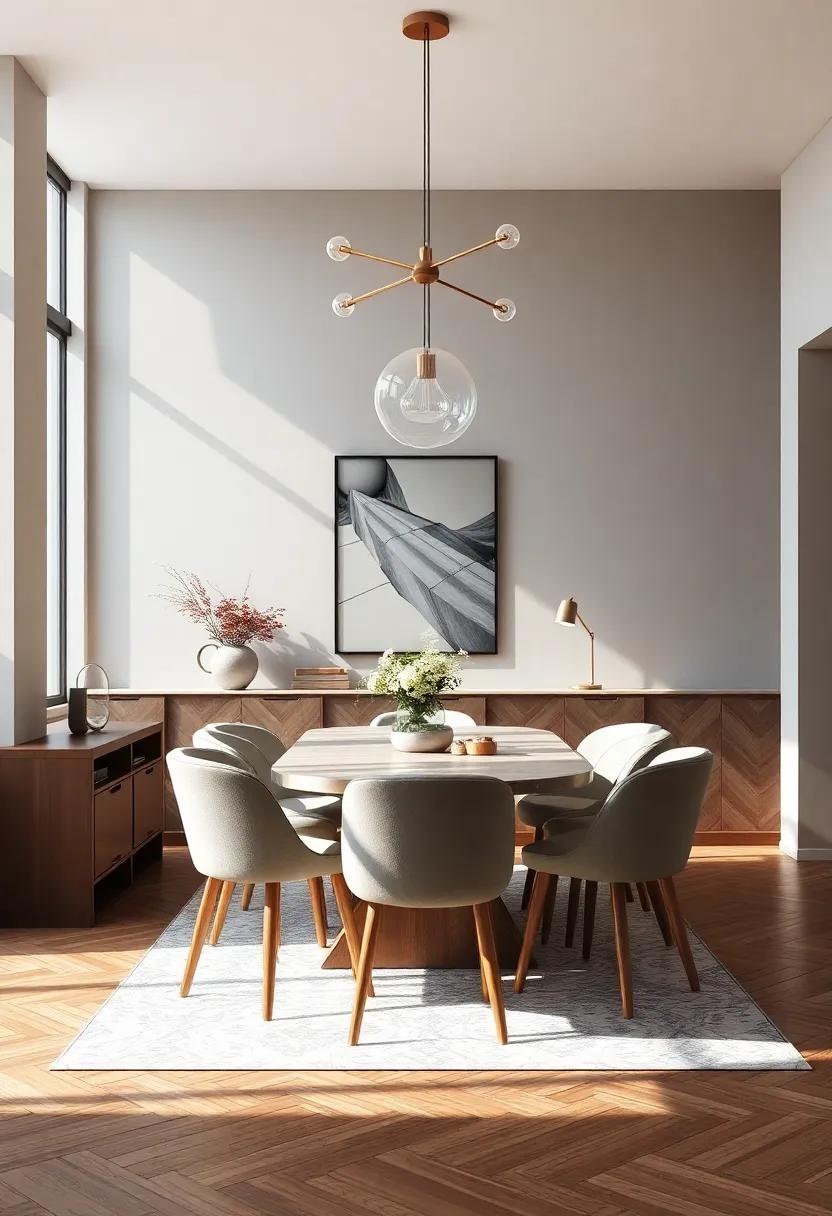
Creating an upscale dining atmosphere in an open concept space invites the opportunity for an eclectic mix of styles that speaks to individuality and sophistication. Consider incorporating elements such as a beautifully distressed farmhouse table paired with sleek modern chairs, which together can create a striking juxtaposition.To further enhance this design aesthetic, think about using decorative accents from diverse origins:
- Handcrafted pottery from local artisans
- Mid-century modern light fixtures for a retro vibe
- Luxurious textiles like silk or velvet in curtains and table runners
This blend not only adds visual interest but also tells a story, making the dining experience feel unique.To achieve a harmonious look, consider balancing textures and colors.As a notable example, combine warm wood tones with cool metallic accents, and layer soft pastels with bolder hues.A thoughtfully curated display on an open shelf can serve as an eye-catching focal point that complements your dining setup:
| Element | Purpose |
|---|---|
| Color Variety | Adds depth and interest |
| Mixed Materials | Creates a tactile experience |
| Cultural influences | Reflects personal style |
Seasonal Decor: Refreshing Your Dining Space throughout the Year
Transforming your dining space with the changing seasons offers an exciting opportunity to keep your home feeling fresh and inviting.As the leaves change color in autumn or fresh blooms emerge in spring,subtle shifts in decor can reinvigorate your open concept dining area. Consider the following ideas for seasonal touches:
- Autumn: Incorporate warm tones with rustic elements like gourds, pinecones, and plaid table linens.
- Winter: Introduce cozy textures with woolen throws on chairs and twinkling string lights for a festive touch.
- Spring: Use bright colors and floral arrangements to celebrate renewal, while keeping it airy and light.
- Summer: Embrace casual elegance with vibrant fruits as centerpieces and breezy fabrics to create a cheerful atmosphere.
Create a dynamic environment by changing up your table settings with the seasons. Consider using a rotating display for centerpiece items that reflects the time of year, like a fruit bowl in summer, a pumpkin arrangement in fall, or elegant candles in winter. Here’s a handy table to help guide your seasonal centerpiece planning:
| Season | Suggested Centerpiece | Color Palette |
|---|---|---|
| Spring | Fresh Flowers | Pinks, Greens, Soft Yellows |
| summer | Fruit Bowl | Bright reds, Yellows, Oranges |
| Autumn | Pumpkin Display | Oranges, Browns, Darks Greens |
| Winter | Candle Array | Whites, Golds, Deep Reds |
In Summary
As we step into an era where our homes are not just shelters but expressions of our lifestyle, embracing open concept dining room designs offers a fresh perspective on modern living. It seamlessly blends functionality with aesthetics, creating a canvas where memories are shared and culinary adventures unfold.The innovative designs explored in this article serve as inspiration, urging you to redefine boundaries and explore the endless possibilities your dining space can offer. Whether you prefer sleek minimalism or vibrant eclecticism, the key is to let your dining room reflect your individuality while fostering connection among loved ones. As you embark on this design journey, remember that a well-curated space can transform the simplest meals into cherished experiences. So,go ahead—lift your gaze,embrace the space around you,and let your dining room become a true centerpiece of modern life.
As an Amazon Associate I earn from qualifying purchases.

